Original 'Survivor' star reflects on moment he knew show would be 'big'
Television in the 21st century has evolved from cable to a steady stream of, well, streaming options that has turned the industry on its ear. At the dawn of the millennium, perhaps the last great innovation in basic network programming took place when a show featuring 16 people no one had ever heard of debuted.
“Survivor: Borneo” premiered on May 31, 2000, leading into summer, considered then to be a dead period for television. The reality show about total strangers sent to live on an island with no amenities halfway around the world while being forced to vote each other out until one person remained to claim a $1 million prize captivated viewers in a manner no one saw coming.
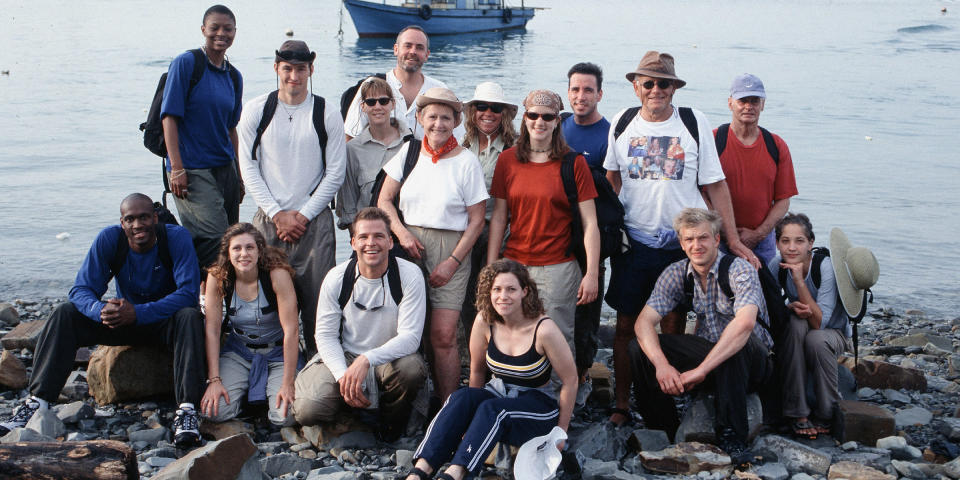
“It’s 100 degrees or hotter every day, a hundred percent humidity. You’re not eating, you’re agitated, you’re not sleeping, you’re sitting in the rain, no shelter and then you’re with strangers, so all those factors is the drama,” Gervase Peterson, who finished in seventh place during that inaugural season, told TODAY. “All you have to do is put the people in and let everything happen.”
Yes, there were the inevitable “Gilligan’s Island” jokes, but CBS, creator Mark Burnett and host Jeff Probst wound up having the last laugh, as the “Survivor” franchise quickly became a juggernaut and generated the kind of watercooler buzz most shows would kill to garner, including one episode in which the castaways’ culinary choice raised eyebrows.
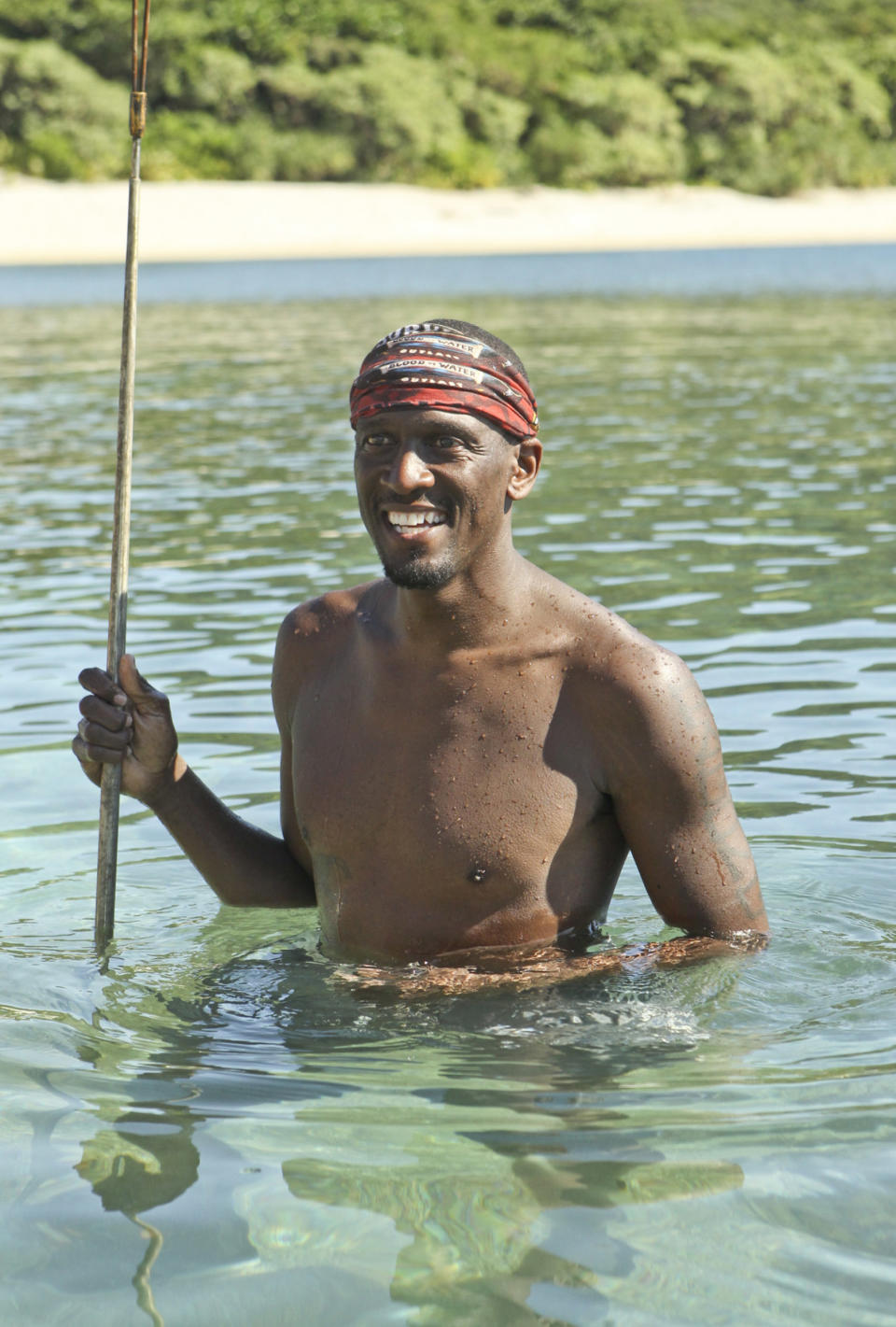
“When we ate rat, for me that was the turning point. I’m like, ‘We’re actually eating rat.’ Who’s not gonna watch this show? For me, that was that moment, I’m like, ‘This show is gonna be big,’” Peterson said.
The original "Survivor" averaged 28 million viewers a week, with more than 51 million people tuning in for the finale on Aug. 23, 2000, according to Nielsen, making it the most-watched primetime episode of any show that year (excluding special-event programming, like the Super Bowl). The finale was also the second-most-watched TV episode of the decade, behind only the "Friends" finale.
Watch TODAY All Day! Get the best news, information and inspiration from TODAY, all day long.
Reality shows had existed before. MTV scored with a generation of viewers during the ‘90s who watched strangers live together on “The Real World,” but there was no looming cash prize, so “Survivor” may have been the product of being the perfect show at the perfect moment.
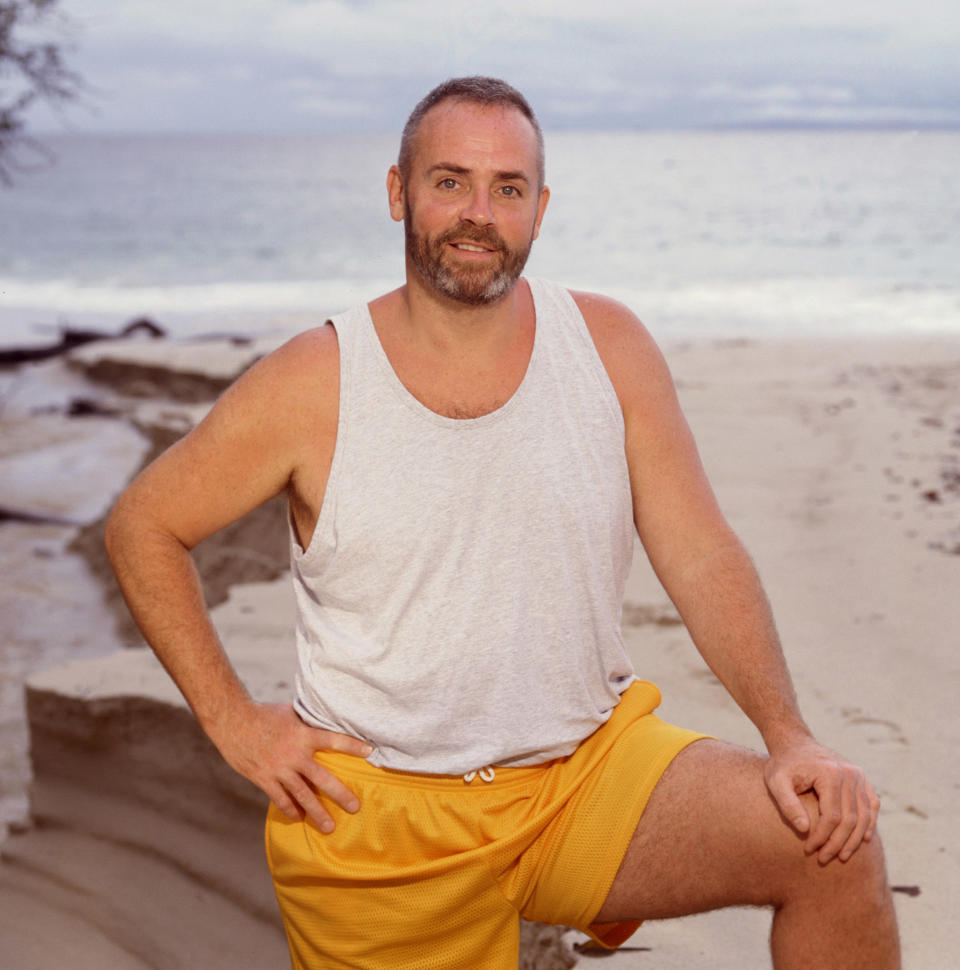
“‘The Real World’ helped kind of set the tone a little bit, watching real people doing real things, arguing, fighting, all that kind of stuff. By the time we came along in 2000, it was just the right time. Coming out in summertime, we had no competition,” Peterson, who competed on the show again on “Survivor: Blood vs. Water” in 2013, said.
“I think if we came out in the fall, that’s when all the networks put out all the new TV shows. There’s so much competition that you want to watch where this is the only thing on that’s original programming.”
The first season proved just how original the show was. Not only did the castaways eat rat, but viewers were also spellbound by feisty former Navy SEAL Rudy Boesch, eventual winner Richard Hatch parading around naked and Sue Hawk’s brutal takedown of runner-up Kelly Wiglesworth in the final tribal council.
Hatch himself became an unlikely reality star, between his refusal to pretend he cared about other castaways and his innovative concept of creating an alliance with others to enhance his chances in the game. Instead of a nice guy walking into the sunset with the money, here was a villain whose victory flummoxed fans.
“If the person you like wins, it’s cool and everything, but you are hated. America hated you and when you won they couldn’t understand how you won. They couldn’t comprehend it,” Peterson said he told Hatch.
Even with a formula that continues to enthrall viewers, “Survivor” is not without its flaws. As the Black Lives Matter movement has gained more attention and discussions about racial equality have taken place around the country, Peterson thinks the show would be wise to mirror what the nation looks like.
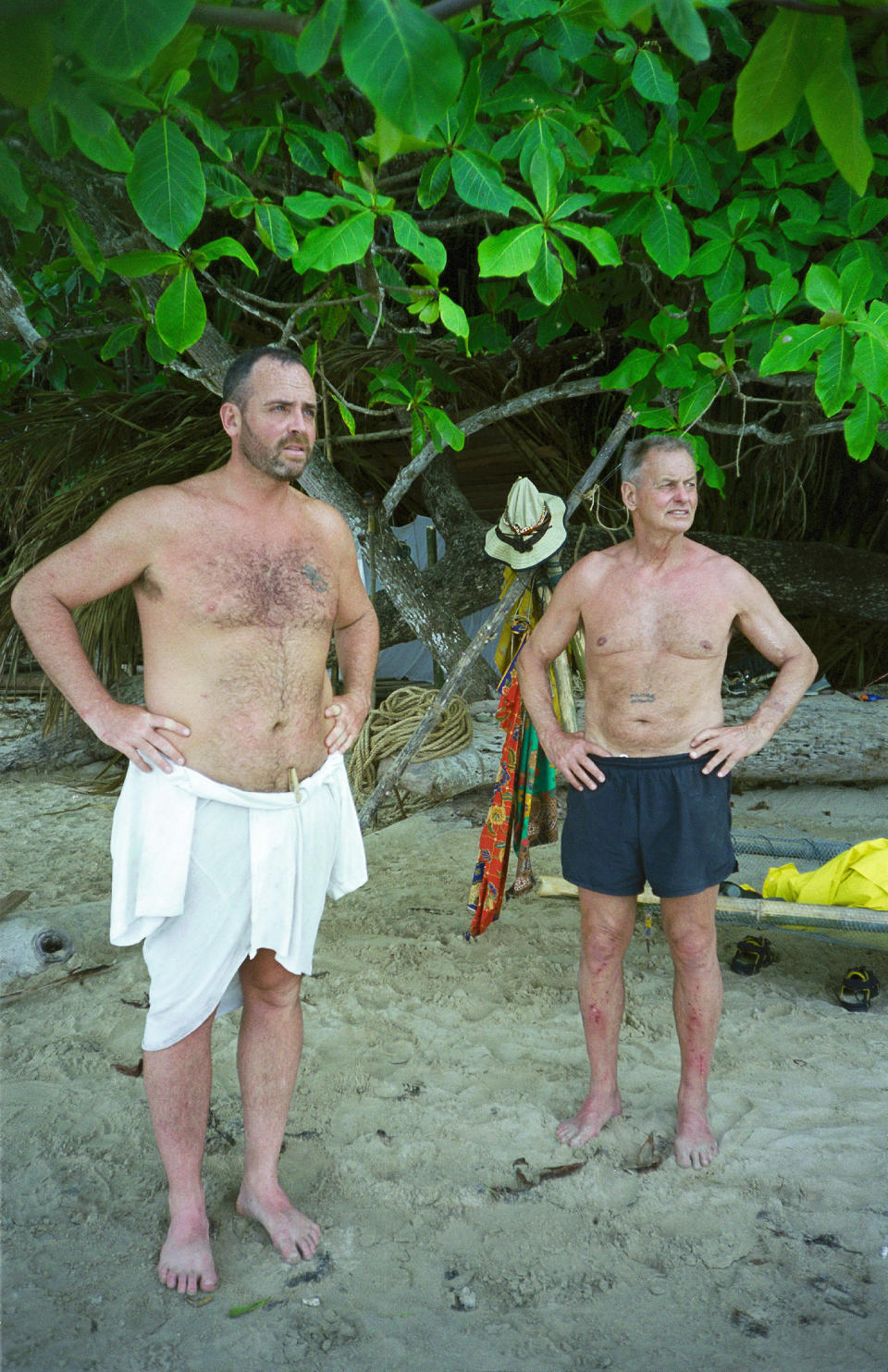
“I would make 'Survivor' more equally diverse. For years, it was a standard of one Black man and one Black woman. That's just terrible,” he told Entertainment Weekly in July. “Also, more diverse in casting and production. This would help in a more diverse cast and the telling of the diverse cast stories and not labeling them with negative stereotypes. It's been long overdue.”
He’s not alone in that thinking. Several former Black castaways have expressed their desire to see the show evolve, with different groups calling for change, including J'Tia Hart, who competed on "Survivor: Cagayan" in 2014 and has created a petition on MoveOn.org requesting the franchise modify facets of the show.
"What they don't do a great job with is telling positive stories and connecting with the multifacets of being African American," Hart told NPR. "I have a degree in nuclear engineering from a top engineering school. I'm a mother. I work in national security. I am very well-rounded. And I just got boiled down to a simple trope of a lazy, unintelligent person."
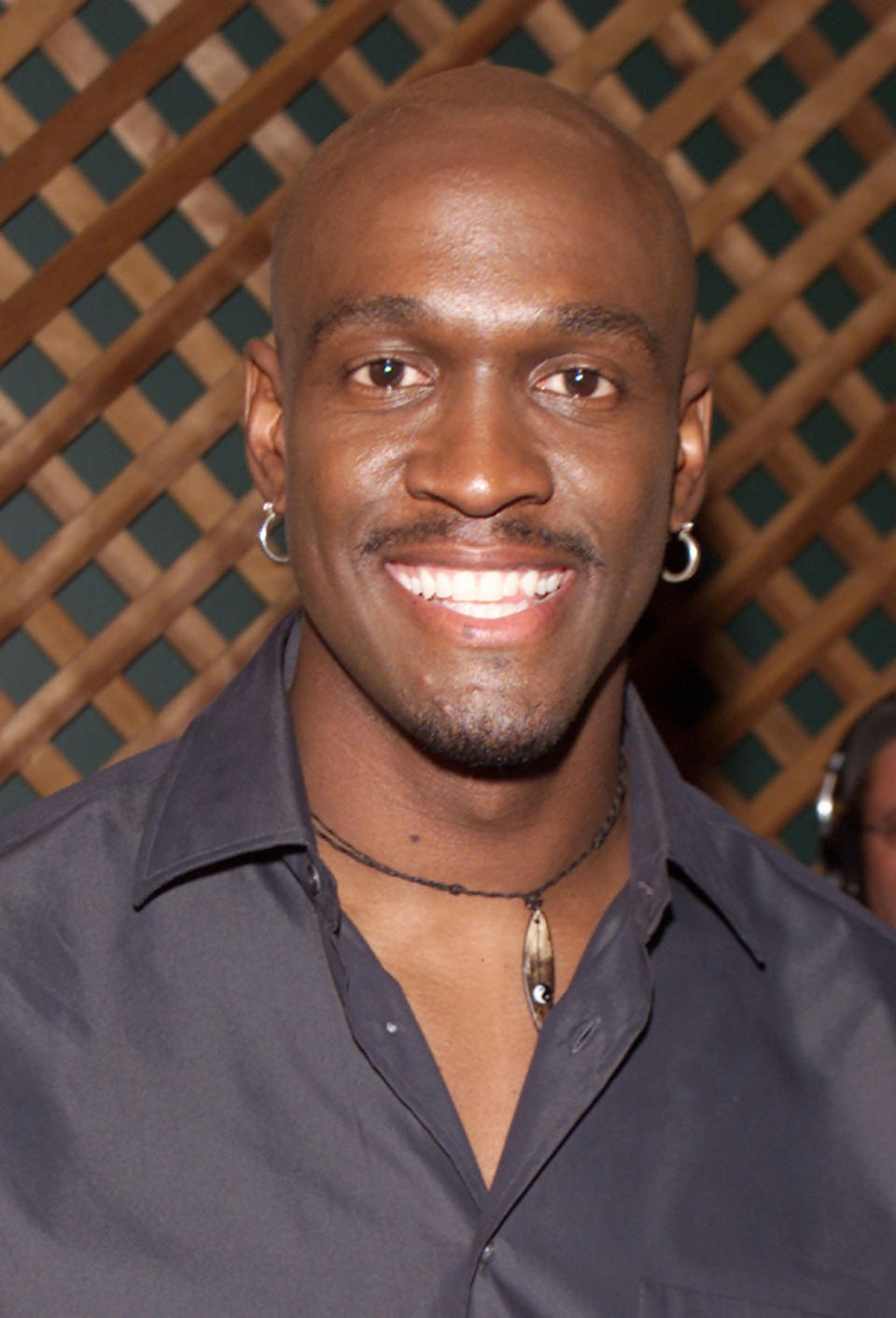
Whatever its shortcomings, “Survivor” has spawned legions of knockoffs, as networks tried to cash in on this new phenomenon that stretched from the successful (“The Amazing Race”) to the forgettable (“I'm a Celebrity...Get Me Out of Here!”).
The concept of eliminating someone in what appears to be dramatic fashion also became a template that still very much exists in the reality show universe, adding suspense in everything from “Top Chef” and “American Idol” to “The Bachelor” and “Big Brother.”
So, what’s the secret to “Survivor” finding a way to continue to outwit, outplay and outlast the doubters? Above all else, the franchise has done a stellar job getting the right people to play the game, according to Peterson.
“Casting, No. 1, is the biggest part of the show. Finding the right people to put on the show. I think because it’s unscripted, they’re not telling us what to do out there, what to say, how to act,” he told TODAY.
“I think people respect that part of it because for them the show is real. We’re really out there starving. I lost 30 pounds out there. That’s real. You could see us losing the weight. You could see us going through these struggles. The emotional roller coaster that every player goes through. It doesn’t get any better than that for TV.”

